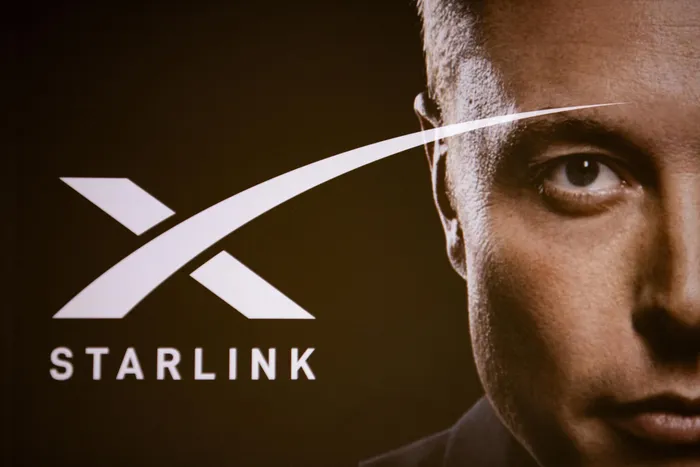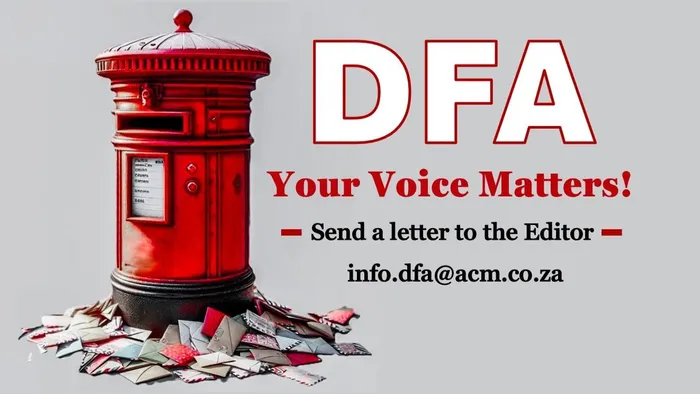Is Elon Musk's Starlink reorienting 'cyberspace sovereignty' as a new geopolitical order?
OPINION

Elon Musk’s Starlink satellite network could reshape global and national concepts of cyberspace sovereignty
Image: Supplied
By Vuyani Sokhaba
IN TODAY'S rapidly evolving digital landscape, the question of "Digital and Cyberspace Sovereignty" has become increasingly relevant both globally and domestically. The recent discussions surrounding South African President Cyril Ramaphosa's visit to the White House, particularly regarding the arrival of Elon Musk's Starlink satellites, highlight this important dialogue.
It is crucial to explore how Starlink may reshape our understanding of cyberspace sovereignty and its implications for national governance. Starlink's ambitious plan to provide high-speed internet globally presents numerous opportunities, especially in bridging digital divides in remote areas lacking traditional infrastructure. However, it also raises significant concerns about control over digital spaces and national sovereignty.
Since the Treaty of Westphalia in 1648, which established the modern nation-state and ended the Thirty Years' War, the framework of state sovereignty has evolved considerably. The treaty provided rulers with extensive authority over their territories, creating expectations for governance within borders and regulating the behaviour of external actors. In recent years, states have increasingly sought to assert control over both physical and digital borders, creating virtual barriers and enhancing cybersecurity measures. These actions aim to protect citizens from various threats that could undermine their sovereignty.
Governments across the globe have implemented comprehensive initiatives to counter cyberattacks, leading to strict internet regulations as part of proactive governance strategies. These measures are intended to anticipate and deter malicious actions, including the risks posed by unregulated private entities. The term "cyberspace sovereignty," introduced by China’s former internet czar, Lu Wei, encapsulates the contemporary struggle for control, advocating a balance between "freedom and order" and emphasising the need for "firewalls" to prevent harmful external content.
China’s approach exemplifies an authoritarian model of digital governance, prioritising state control over citizens’ online experiences, contrasted with libertarian ideals promoting unregulated free expression in cyberspace. Lu Wei's analogy, which likens the internet to a car that requires "brakes" or governance to avoid chaos, reflects this perspective. Restrictions on internet freedom are justified by the Chinese narrative as essential for maintaining social order and political stability, diverging from Western viewpoints on internet sovereignty.
In this current context, figures like Elon Musk present challenges to national sovereignty. For example, his social media platform X recently faced legal challenges in Brazil, highlighting the tension between foreign tech giants and local governance. The Brazilian judiciary underscored the importance of national sovereignty and democracy, illustrating the ongoing friction in these relationships.
Despite legal challenges, Brazil has allowed the expansion of Starlink under stringent conditions set by its telecommunications regulator, Anatel. These regulations aim to ensure market fairness and uphold digital sovereignty while acknowledging the potential benefits of enhanced connectivity. Yet, they also raise crucial questions about protecting national interests and the need for a robust regulatory framework.
Countries like China have historically maintained strong controls over foreign entities in critical sectors, demonstrating a protective stance toward national interests. As these dynamics evolve, other nations can learn from China's experiences. While economic liberalisation may continue, significant governmental authority over market access remains a priority.
Conversely, nations like South Africa and Brazil advocate for democratic values while emphasising individual rights and free speech. However, South Africa’s regulatory body, ICASA, struggles with effective management of digital intrusions. The future of internet governance depends on a comprehensive understanding of "cyberspace sovereignty," rooted in the Westphalian order and shaped by modern warfare realities.
This leads to an essential inquiry: How can nations incorporate Starlink into their digital public infrastructure while ensuring accountability and safeguarding against both external overreach and potential governmental overreach? In the US, the "AI-first strategy" adopted by some leaders in the Trump administration aims to streamline processes and promote AI usage, raising concerns about privacy and government surveillance amidst Musk's involvement and influence.
Musk’s recent role within the Trump administration, particularly through the Department of Government Efficiency (DOGE), heightened these concerns due to the extraordinary access granted to government databases and the potential ramifications for national privacy and security. The collaboration between DOGE, Musk, and other entities focusing on data consolidation raises significant risks, emphasising the need for vigilant oversight.
Lessons from the US-China tensions, particularly the diplomatic disputes involving TikTok, highlight the vulnerabilities inherent in digital and cyber governance. This broader narrative reflects the intersection of technological governance, cultural exchange, and digital sovereignty in an increasingly fragmented online landscape, underscoring the critical importance of safeguarding cyberspace integrity to avoid various threats to political and economic stability.
* Vuyani Sokhaba is a former president of the UWC SRC and former deputy chairperson of Sasco in the Western Cape. He is currently a Policy and Research Officer at the Northern Cape Department of Roads and Public Works. He writes in his personal capacity.
…
* The opinions expressed in this article are those of the author and do not necessarily reflect the views or policies of the DFA or its staff. While we strive to provide a platform for diverse perspectives, the content remains the sole responsibility of the contributor. Readers are encouraged to form their own opinions based on a range of information sources.
** Do you have something on your mind? We’d love to hear from you! Share your thoughts, opinions, or experiences by submitting a Letter to the Editor. Your voice matters and could inspire or inform others in our community. Submit your letter via e-mail to info.dfa@acm.co.za and you could see your words featured in the DFA.

Have your say.
Image: Morgan Morgan / DFA